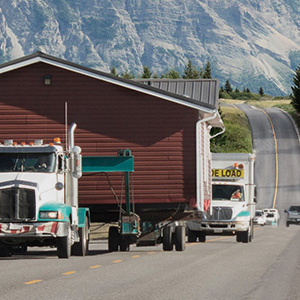The Government advice to date has failed to provide removal companies with much certainty as to whether their business can, or should, continue to provide removal services.
It is clear that where someone in the household is self-isolating or is a shielded individual, that no work should be carried out in that household. If an employee is showing symptoms of coronavirus, however mild, they should also not be permitted to go into someone else’s house.
Recent guidance has now made clear that house moves should be delayed wherever possible meaning that the starting point for businesses is to ask their customer whether the move can be delayed and, if it can, the removal service can simply be provided at a later date.
Where the move cannot be delayed for any reason and the customer is insisting that the move should go ahead then the operator needs to consider whether the move can be carried out safely and the rules on social distancing, i.e. to maintain a two-metre distance between individuals, can be complied with. Most moves will require at least two individuals to load the vehicle however where a move can be performed by just one person, it may be possible for it to be carried out safely. Our view is that, for the majority of moves, it will be difficult for the social distancing measures to be complied with, particularly where two individuals are required to carry out the removal.
Operators should also be wary that a customer that is keen to move may be unwilling to notify them that they are displaying symptoms and this is something to bear in mind when consider whether the move can be carried out safely.
Where a move cannot be delayed, and the operator considers that it cannot be carried out safely, or it does not have anyone available, or willing, to perform the move, then the operator may be able to rely on a force majeure clause in the contract to terminate it. Whether a force majeure clause applies to pandemics such as Covid-19 will be dependent on the wording of each individual contract.
Where there is no force majeure clause, or where the wording is not sufficient wide to cover the current circumstances, then operators would need to rely on the doctrine of frustration in order to argue that the contract has come to an end. Frustration will not be expressly mentioned in the contract but instead applies by operator of the common law where an event outside of the parties’ control means that the contract is impossible to perform.
Clearly, whether or not the Covid-19 pandemic can be regarded as a frustrating event is currently unprecedented in UK Courts however it is likely to be heavily dependent on the facts of each individual case. Our view is that the Courts are likely to take a dim view on claims brought against companies who have failed to perform a contract due to it not being possible to carry out the move safely.
This may differ for companies who have accepted a removal since the current lockdown was imposed as their customers may be able to argue that the operator was aware of the current situation and that it could have difficulties performing the contract.
In summary, where a customer is insistent that it essential for a move to take place, it is a decision for the operator to make as to whether the move can be performed while maintaining social distancing measures and without putting employees at risk.
Please contact our dispute resolution team on 01254 828300 or at disputeresolution@backhouses.co.uk.


